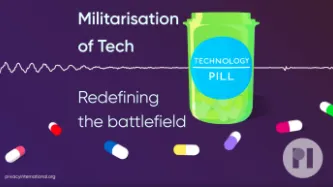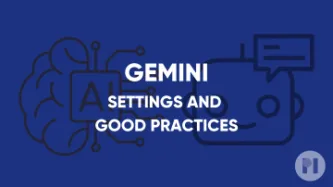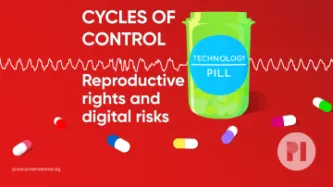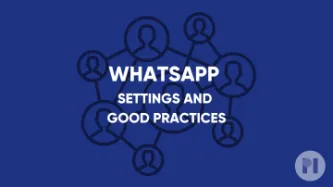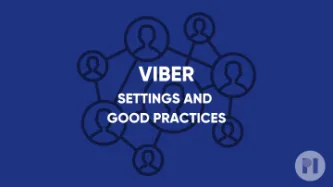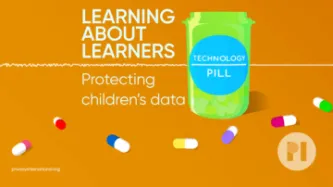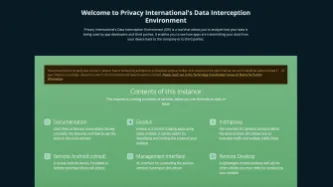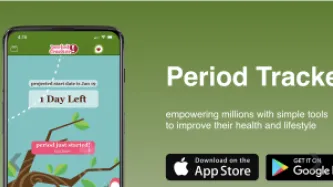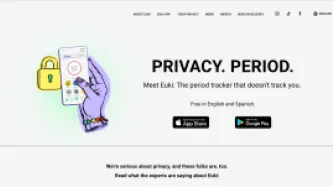Search
Content type: Video
Links Read more about your optionsLearn more about PI's position on the Cyber Resilience Act
Content type: Video
All of our militarisation workBelow are all the articles we talk about in this episode:What is Militarisation of Tech?Key Concerns Regarding Governance in the Era of Militarisation of Tech“Killer Robots”: Read PI's statement during informal consultations on autonomous weapons systems in New YorkHow Data Drives the Militarisation of TechOn the Applicable Legal Frameworks and Regulatory Gaps: International Humanitarian Law and International Human Rights LawWe have a mailing list specifically for…
Content type: Long Read
INTRODUCCIÓN
Desde hace algunos años, los modelos de negocio de las grandes plataformas tecnológicas han evolucionado a gran velocidad. A pesar de su posición dominante en varios mercados, los gigantes tecnológicos como Google y Meta están incursionando en nuevos territorios con el fin de ampliar su base de usuarios. Una de sus apuestas más llamativas ha sido su incursión en el “mercado de la conectividad” a través de cuantiosas, y en ocasiones fallidas, inversiones en infraestructura de red.…
Content type: Long Read
In their gold rush to build cloud and AI tools, Big Tech is also enabling unprecedented government surveillance. Thanks to reporting from The Guardian, +972 Magazine, Local Call, and The Intercept, we have insights into the murky deals between the Israeli Government and Big Tech firms. Designed to insulate governments from scrutiny and accountability, these deals bode a dark future for humanity, one that is built using the same tools that once promised a bright, positive world.On 25 September…
Content type: Guide step
Google’s Gemini and other AI chatbots are used by people in a variety of ways, including to conduct research, create content and analyses, deliver projects, and engage in conversations. We are concerned these AI tools can pose privacy and security risks when offered by tech firms, as they give these companies greater access to your data and access to our personal and professional lives.This guide includes steps to limit the risks of using this tool such as:Enabling Two-Factor…
Content type: Long Read
Governments are rapidly militarising our societies. They are already increasing military spending, undermining civil rights protections, and reducing social protection programmes. Governments already depend on the private sector for delivering public services, through public-private partnerships.Now they are looking to the tech industry to design the next generation battlefield. As new technologies are at the core of this shift, industry is keenly adapting.Big Tech firms are militarising,…
Content type: News & Analysis
Anyone who’s used the internet at some point over the last 25 years won’t exactly struggle to understand that Google has a pervasive, and it turns out illegal, monopoly over online search. A recent ruling from a US court setting out what they think should be done about this stranglehold is, however, less clear-cut. It does little for Google’s competitors, while raising complex questions about privacy and data.U.S. District Judge Mehta rejected calls from both the US Department of Justice and…
Content type: Examples
Popular educational apps have access to reams of private data that could result in privacy and security violations, a new study has found.25 apps were tested, with many found to request access to the users’ camera, calendar, location, contacts, and the ability to record audio, among other permissions.Apps like Canvas Student, Coursera, Duolingo, Remind, and Simplilearn can access Google, Meta, and Samsung accounts on the device - something that is not necessary for them to work, but which could…
Content type: Video
Links Maria's original rewilding article, with Robin Berjon, in Noema Maria's article 'This is your phone on feminism'A talk Maria gave about rewildingMaria's website where you can keep an eye to find out when her book is coming out!London Centric and the F**k you busMore about PI's work on competition
Content type: Video
LinksLearn more about Repro uncensoredRepro Uncensored incident report formAdriana Smith's caseMore about Adriana's casePrivacy International's Menstruation apps researchResearch on Bing's Typo-searchingMSI on the Global impact of Roe V. Wade being overturnedReport by Fòs Feminista on the Global Impact of the Dobbs DecisionMeta getting rid of factchecking functionAmazon USA report called Obstacles to Autonomy, which includes info on advertising account restrictionsAn report by the Independent…
Content type: Long Read
In June 2025, a team of researchers exposed how Meta and Yandex abused Android and browser-specific tools to track users outside of their application and collect associated data. The technique used to achieve this was truly innovative, and akin to malware behaviour. It exploited protocols to break the isolation between apps and browser, a fundamental security concept meant to protect users. This allowed these companies to tie the browsing history of individuals with their accounts on the…
Content type: Guide step
Whatsapp (owned by META) is one of the most popular end-to-end encrypted messaging service. If you use it on your day-to-day it's worth reviewing some of your current settings and how you are making use of the platform.
This guide includes:
Chat backup settings
Visibility settings
App permissions
Managing desktop sessions
App security and two-factor authentication
Good Practices
Chat backup settings
This is one of most important settings to consider in WhatsApp. Because WhatsApp is end to end…
Content type: Guide step
If you use Viber on your day-to-day it's worth reviewing some of your current settings and how you are making use of the platform.
This guide includes:
Chat backup settings
Visibility settings
App permissions
Managing sessions
Good Practices
Deactivating your account
Chat backup settings
This is a key setting to look into. Viber states that is is end to end encrypted, which means that messages are only accessible by both the sender and the receiver, not being stored anywhere along the way.…
Content type: Video
Links:Read more from Defend Digital MePI's work on Securitising Education25 Years old - The Database State report5 safes principlesUK Government's publication on Genomics in EducationTips and Tricks for submitting a Data Subject Access RequestRequest your information from the Department for Education
Content type: Long Read
Period tracking apps and the rollback of reproductive rightsThe aftermath of the overturning of Roe v. Wade in the United States (US) sparked widespread debate and concern that data from period tracking apps could be use to criminalise those seeking abortion care.While the surveillance and criminalisation of reproductive choices are neither new nor unique to the US, the scale and intensity of today’s crisis continue to grow. To put it into perspective, 22 million women and girls of reproductive…
Content type: News & Analysis
Layla looks at her calendar on her phone. She’s in charge of planning her book club’s monthly meeting. After thinking for a second, she summons her AI assistant: “Hey Assistant, can you book me a table at that tapas restaurant I read about last week, and invite everyone from the book club? The restaurant should be in my browsing history. Let me know if the journey is more than 1-hour for anyone”. As the assistant compiles a response, she wonders if anyone else will hear this.Technology has made…
Content type: Long Read
Go back to the report page Methodology We looked at the top period tracking apps downloaded in the Google Play Store, some of which we had examined in our original research, and some of which are newly emerging apps that have since grown in popularity. The top period-tracking apps with the most downloads included Flo; Period Tracker by Simple Design; and apps we'd tested in our previous research that still exist such as Maya, Period Tracker by GP Apps, as well as several apps popular…
Content type: Long Read
Go back to the full report pagePeriod Tracker by Simple Design is another popular period tracking app that has over 150 million users. To begin using this app the user answers a set of three onboarding questions for about their cycle pattern. The user has the option to answer 'I'm not sure' for each question. After answering 'I'm not sure' for these three questions, we were able to proceed on the app without having to create an account. Throughout our experience inputting our cycle…
Content type: Long Read
Go back to the full report pageThe Maya app is a period tracker app by Plackal Tech based in India. In our previous investigation, we revealed Maya was sharing a plethora of user input data to Facebook. However, in response to our 2019 research, the app claimed it had since ‘removed both the Facebook core SDK and Analytics SDK from Maya’ while ‘continu[ing] to use the Facebook Ad SDK, post opt-in to our terms and conditions and privacy policy’ for revenue purposes, the latter of which 'does not…
Content type: Long Read
Go back to the full report pagePeriod Tracker by GP Apps is another popularly downloaded app we previously looked at in 2019. In our original research, we determined that this app did not appear to share any user input data with Facebook. This time, we examined the third parties that the app appeared to integrate and what kind of data was being shared with these third parties, as well as what user data the app was storing on its own or external services. It’s worth noting that the…
Content type: Long Read
Go back to the full report pageThe WomanLog app, developed by Pro Active App SIA, is a Latvia-based period tracking app with over 10 million downloads that features an 'Intelligent Assistant' chatbot (more on this below). To get started on the app, we completed a short onboarding questionnaire about which app mode we intended to use (e.g., standard) and the length of our cycle and period. Our answers to these questions were sent across the web traffic to the app developer's API:
Content type: Long Read
Go back to the full report pageWocute is a Singapore-based period tracking app with over 5 million global downloads. To get started on the app, a user first needs to complete a short onboarding questionnaire about their goal for using the app ('track my cycle'); their year of birth (which we skipped), followed by the length of their period cycle and start date of their last period (for which we selected 'I'm not sure'). These responses were all communicated to the API:
Content type: Long Read
Go back to the full report pageStardust is a New York-based astrology-themed period tracking app that has recently risen in popularity, having received a spike in downloads in the U.S. following the overturning of Roe v. Wade. According to its website, the app takes a de-identification approach to users' privacy by utilising a third party 'security system' operated by Rownd, “an authentification platform that stores your contact information for us [Stardust] so that we cannot associate your…
Content type: Long Read
Go back to the full report pageThe last app we looked at was Euki, which has been recognised among privacy advocates. The app is a U.S. non-profit privacy-by-default period tracker app founded by a group of social tech and sexual and reproductive health organisations like Digital Defense Fund and Ibis Reproductive Health. The app has recently become open-source. We ran the Euki app through the DIAAS environment to observe its web traffic as for the above apps. There were no onboarding…
Content type: Long Read
Go back to the full report pageLimitationsBefore our analysis, we note the technical limitations (and the scope of our research) meant we did not test certain features mentioned, such as Google Fit integrations offered by some apps. We also mention the limitations of our DIAS environment, which only allows us to see web (client-side) interactions, rather than server-side interactions, the latter of which are increasingly common among more advanced platforms that utilise cloud computing (e.…
Content type: Long Read
Our research has introduced questions about the right to privacy when apps have the potential to share a range of user-related data. This is a particular concern for people using apps in countries where there are restrictions on access to abortion. In the US, after the overturning of Roe v Wade, concerns around the privacy practices of period-tracking apps have been raised in states that have introduced restrictions and bans on access to abortion. It could be very possible for some period…
Content type: Video
Links2G phone networks are being shutdownRead the Rest of World storyPI's Low Cost Tech researchListen to our podcast on connectivity and vertical mergersGoogle anti-trust case and potential break up; Read the Washington Post storyGoogle buy WizImpact of USAID cutsRead the NY Times articleUK cutsPI's work on aid funding surveillance: US Surveillance exportsEU Surveillance AidUm-ing and Ah-ingRead the Knowable articleIsrael, data and AIRead the 972 article Cellphone data for targetingLLM…
Content type: Long Read
“Hey [enter AI assistant name here], can you book me a table at the nearest good tapas restaurant next week, and invite everyone from the book club?” Billions of dollars are invested in companies to deliver on this. While this is a dream that their marketing departments want to sell, this is a potential nightmare in the making.Major tech companies have all announced flavours of such assistants: Amazon’s Alexa+, Google’s Gemini inspired by Project Astra, Microsoft’s Copilot AI companion and…
Content type: Long Read
On 13 March 2025, we filed a complaint against the UK government challenging their use of dangerous, disproportionate and intrusive surveillance powers to undermine the privacy and security of people all over the world. Here, we answer some key questions about the case and the recent events that led to this development.Note: This post was last updated on 13 March 2025.What’s the fuss about?A month ago, it was reported that the UK government demanded Apple Inc – maker of the iPhone, iPads, Macs…

